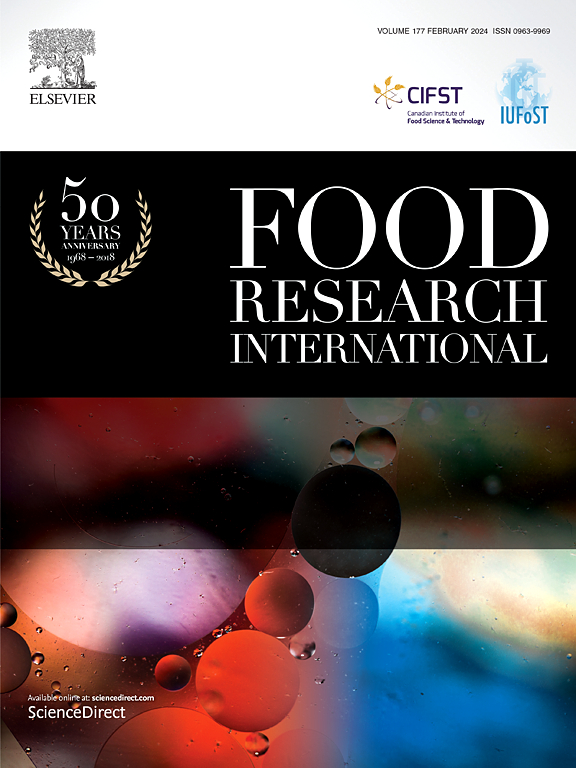In vitro gastrointestinal digestion and fecal fermentation behaviors of pectin from feijoa (Acca sellowiana) peel and its impact on gut microbiota
IF 7
1区 农林科学
Q1 FOOD SCIENCE & TECHNOLOGY
引用次数: 0
Abstract
This study investigated the digestion and fermentation characteristics of pectin from feijoa peel (FPP) and its effect on gut microbiota via in vitro simulated digestion and fecal fermentation. The gastrointestinal results showed that the molecular weight (Mw) of FPP kept stable with small production of reducing sugar and free monosaccharides, indicating that FPP was basically not degraded during digestion. However, during the fecal fermentation, the Mw of FPP significantly decreased with the release of free monosaccharides, which were further utilized by gut microbiota. The content of reducing sugar showed a trend of increasing at first and then decreasing. The production of gases and short-chain fatty acids (SCFAs) increased with the utilization of FPP, along with the pH decrease in fecal culture. Meanwhile, FPP regulated the composition of gut microbiota by suppressing enteropathogenic bacteria (genera Escherichia-Shigella and Fusobacterium) and promoting beneficial bacteria (genera Lactiplantibacillus and Bifidobacterium). Significantly positive correlation was found between SCFAs and bacteria including Lactiplantibacillus and Bifidobacterium. These results suggested that FPP had potential prebiotic functions to promote human intestinal health.

飞燕草果皮果胶的体外胃肠道消化和粪便发酵行为及其对肠道微生物群的影响
本研究通过体外模拟消化和粪便发酵,研究了飞燕草果胶(FPP)的消化和发酵特性及其对肠道微生物群的影响。胃肠道试验结果表明,妃子笑果胶的分子量(Mw)保持稳定,还原糖和游离单糖的产生量较小,表明妃子笑果胶在消化过程中基本未被降解。然而,在粪便发酵过程中,随着游离单糖的释放,FPP 的分子量明显降低,并被肠道微生物群进一步利用。还原糖的含量呈先增加后减少的趋势。随着 FPP 的使用,气体和短链脂肪酸(SCFA)的产生增加,粪便培养物的 pH 值也随之降低。同时,FPP 通过抑制肠道致病菌(志贺氏菌属和镰刀菌属)和促进有益菌(乳杆菌属和双歧杆菌属)来调节肠道微生物群的组成。SCFAs 与乳杆菌属和双歧杆菌属等细菌之间存在显著的正相关关系。这些结果表明,FPP 具有潜在的益生元功能,可促进人体肠道健康。
本文章由计算机程序翻译,如有差异,请以英文原文为准。
求助全文
约1分钟内获得全文
求助全文
来源期刊

Food Research International
工程技术-食品科技
CiteScore
12.50
自引率
7.40%
发文量
1183
审稿时长
79 days
期刊介绍:
Food Research International serves as a rapid dissemination platform for significant and impactful research in food science, technology, engineering, and nutrition. The journal focuses on publishing novel, high-quality, and high-impact review papers, original research papers, and letters to the editors across various disciplines in the science and technology of food. Additionally, it follows a policy of publishing special issues on topical and emergent subjects in food research or related areas. Selected, peer-reviewed papers from scientific meetings, workshops, and conferences on the science, technology, and engineering of foods are also featured in special issues.
 求助内容:
求助内容: 应助结果提醒方式:
应助结果提醒方式:


